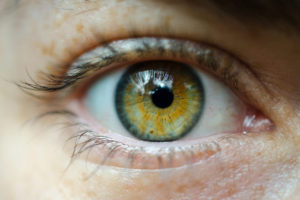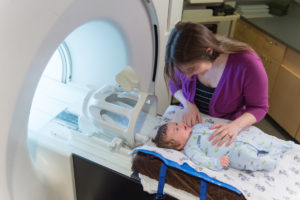Even though we all experience similar emotions, we respond to them in different ways. While it might take years for one person to overcome the loss of a family member, it could take another person only a few months.
Understanding what makes a particular individual more emotionally resilient to adversity is the focus a $10.7 million, five-year National Institute of Mental Health (NIMH) grant awarded to a group of researchers at UW–Madison. The effort, the scientists say, could lead to new developments in the treatment of mood disorders.
While many of us say we feel with our hearts, our brains do much of the work when it comes to regulating emotion. Through a complicated process, the brain sends signals that guide emotional responses to particular life experiences. Why individuals respond differently, however, remains much of a mystery.
“For many psychiatric disorders, abnormalities in emotion regulation is essential to understanding what is wrong,” says UW–Madison psychologist Richard Davidson, who will direct the research effort. “Yet, we know relatively little about why some individuals show abnormalities and others do not.”
By using brain imaging technology and other methods, the researchers want to use this new grant to investigate the mechanisms underlying positive and negative emotion regulation. Identifying the genes, molecules and brain circuitry involved in these processes, says Davidson, could help researchers understand why certain individuals can continue to lead happy and productive lives despite the life stresses they encounter.
Projects will be led by Davidson, director of both the W.M. Keck Laboratory for Functional Brain Imaging and Behavior and the Laboratory of Affective Neuroscience; Ned Kalin, professor and chair of the psychiatry department; Hill Goldsmith, professor of psychology; Paul Whalen, assistant professor of psychiatry and psychology; Marilyn Essex, senior scientist in psychiatry; and Andrew Alexander, assistant professor of medical physics and psychiatry.
The new studies, which will rely heavily on brain imaging technology, build upon the foundation laid by the researchers during the last five years – work that has been supported by a $3.7 million grant from NIMH.
A number of the earlier studies, says Davidson, enabled the researchers to develop methods for imaging emotion in the brain and for showing that emotion regulation can vary from person to person. Some studies began to highlight the connection between certain brain regions and emotions, as well as the effects of early childhood experiences on lifelong emotional responses.
The renewed grant funding – almost triple the first amount – signals the increasing importance of emotions research in health sciences and the increasing role UW–Madison plays in this emerging field, says Davidson.
“It underscores the uniqueness of what we have here at Wisconsin,” he says. “Unlike most center grants that are shared among several institutions, this one funds projects entirely at UW–Madison. It’s a testament that we have assembled a really wonderful team of researchers with an effective track record.”






